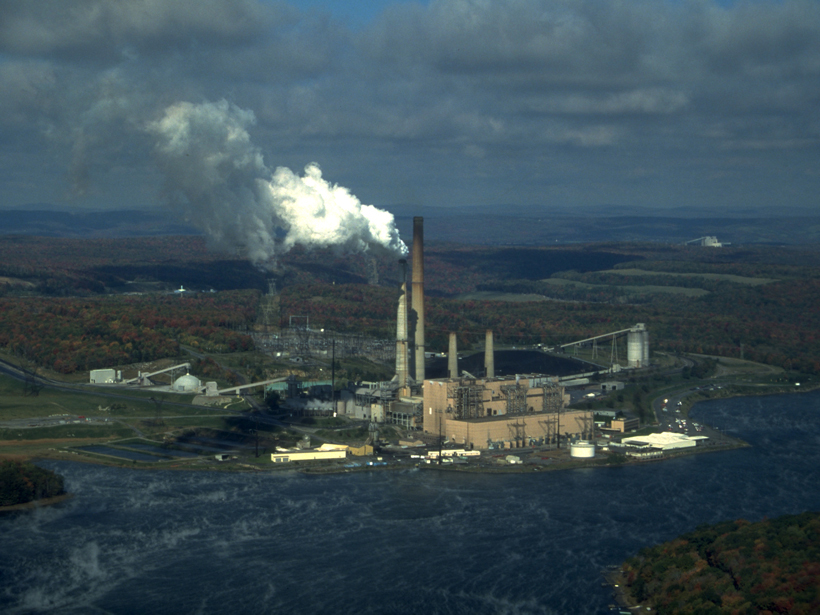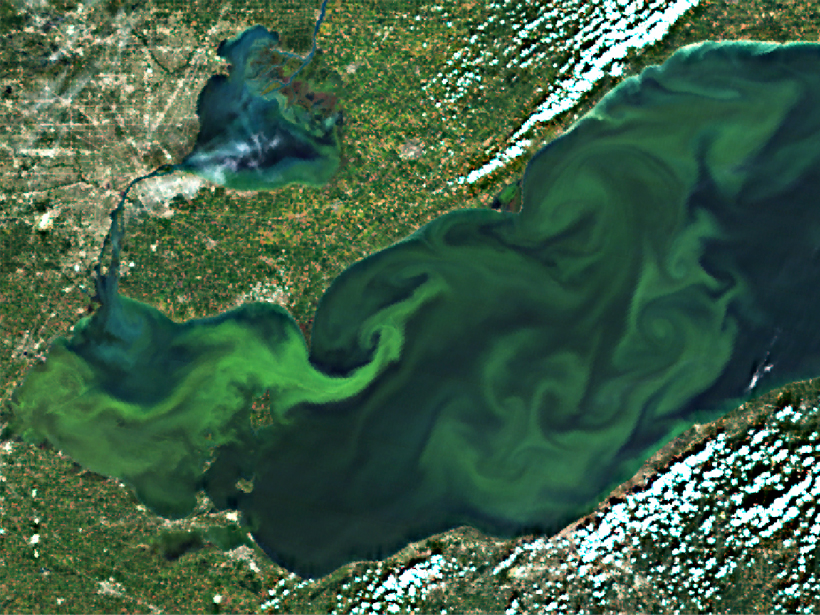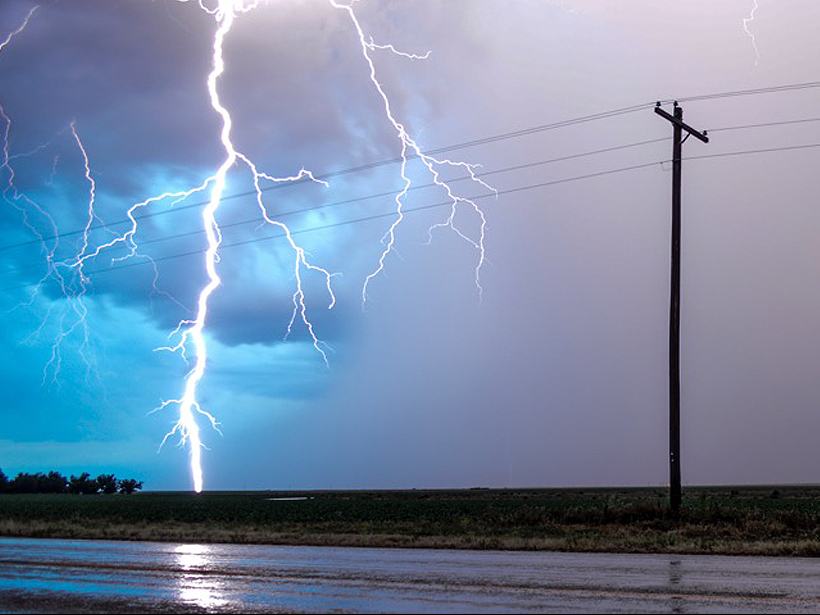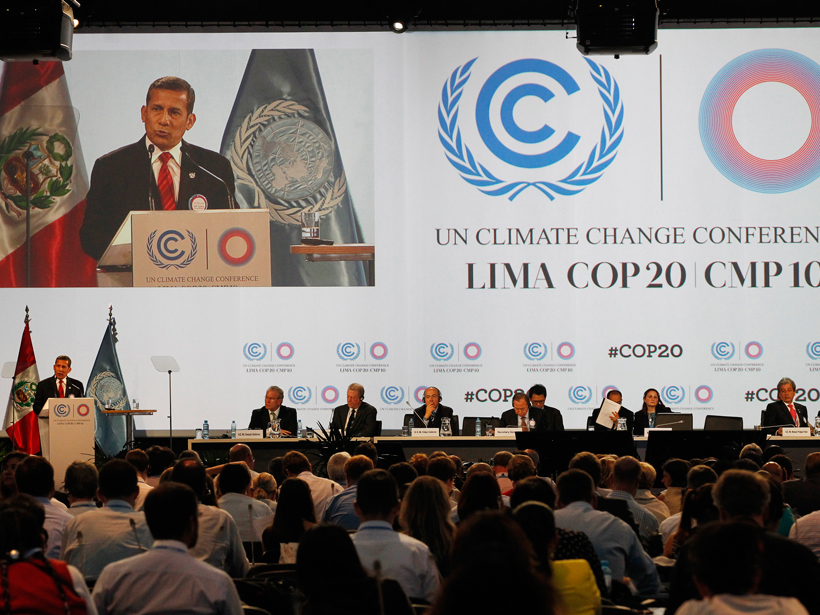Newly published measurements made downwind of West Virginia, Pennsylvania, and Ohio coal-burning plants reveal steep, unexpected drops in atmospheric mercury concentrations since 2006.
United States
U.S. Climate Change Negotiator Says Time Is Right for a Deal
With the United Nations climate change conference imminent, the U.S. special envoy for climate change optimistically outlined what sort of agreement could drive the transition to a low-carbon world.
Aftershocks of Old Quakes Still Shake New Madrid Seismic Zone
Geodetic data show that earthquakes in 1450 and 1811–1812 may be responsible for present-day seismic activity in the region.
Agencies Collaborate, Develop a Cyanobacteria Assessment Network
An integrated, holistic approach to detecting and characterizing cyanobacteria blooms could reduce human health risks and better direct field resources.
Hydraulic Fracturing Water Use Is Tied to Environmental Impact
New map identifies varying water usage in hydraulic drilling operations across the United States and what this means for potential environmental impacts.
How Long Is a Bolt of Lightning?
Better calculations of bolt length could help quantify how much climate-changing nitrogen oxide gas is made when lightning strikes.
Targets of Biggest Global Carbon Emitters Flunk Fairness Test
Pledges so far by the United States, European Union, and China would require all other countries to emit 7 to 14 times less per capita than those three regions by 2030 to limit warming to 2°C.
Advancing Scenario Planning for Climate Decision Making
Scenario Planning for Climate Adaptation Decision Making; Tucson, Arizona, 31 March to 1 April 2015
Climate Woes Real, Say Most in U.S., Canada, but Differ on Cause
Two new surveys find that although large majorities of Americans and Canadians think that global warming is happening, relatively few of them think humans are causing it.
This Winter's El Niño Might Only Dent Western U.S. Drought
The National Oceanic and Atmospheric Administration released its winter weather outlook, which predicts a warm and wet winter in California but not enough rain to eliminate the state's pernicious drought.










